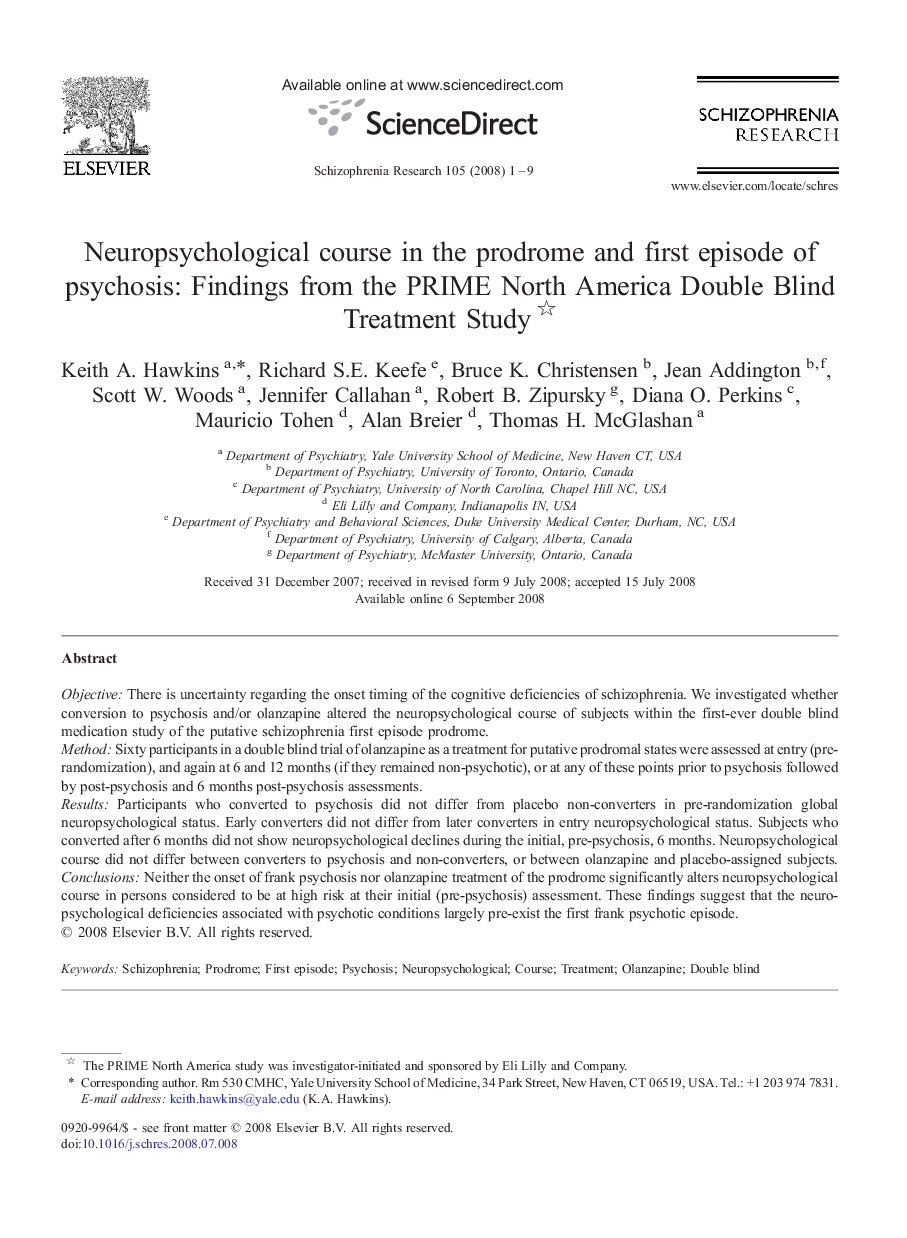| Article ID | Journal | Published Year | Pages | File Type |
|---|---|---|---|---|
| 338750 | Schizophrenia Research | 2008 | 9 Pages |
ObjectiveThere is uncertainty regarding the onset timing of the cognitive deficiencies of schizophrenia. We investigated whether conversion to psychosis and/or olanzapine altered the neuropsychological course of subjects within the first-ever double blind medication study of the putative schizophrenia first episode prodrome.MethodSixty participants in a double blind trial of olanzapine as a treatment for putative prodromal states were assessed at entry (pre-randomization), and again at 6 and 12 months (if they remained non-psychotic), or at any of these points prior to psychosis followed by post-psychosis and 6 months post-psychosis assessments.ResultsParticipants who converted to psychosis did not differ from placebo non-converters in pre-randomization global neuropsychological status. Early converters did not differ from later converters in entry neuropsychological status. Subjects who converted after 6 months did not show neuropsychological declines during the initial, pre-psychosis, 6 months. Neuropsychological course did not differ between converters to psychosis and non-converters, or between olanzapine and placebo-assigned subjects.ConclusionsNeither the onset of frank psychosis nor olanzapine treatment of the prodrome significantly alters neuropsychological course in persons considered to be at high risk at their initial (pre-psychosis) assessment. These findings suggest that the neuropsychological deficiencies associated with psychotic conditions largely pre-exist the first frank psychotic episode.
